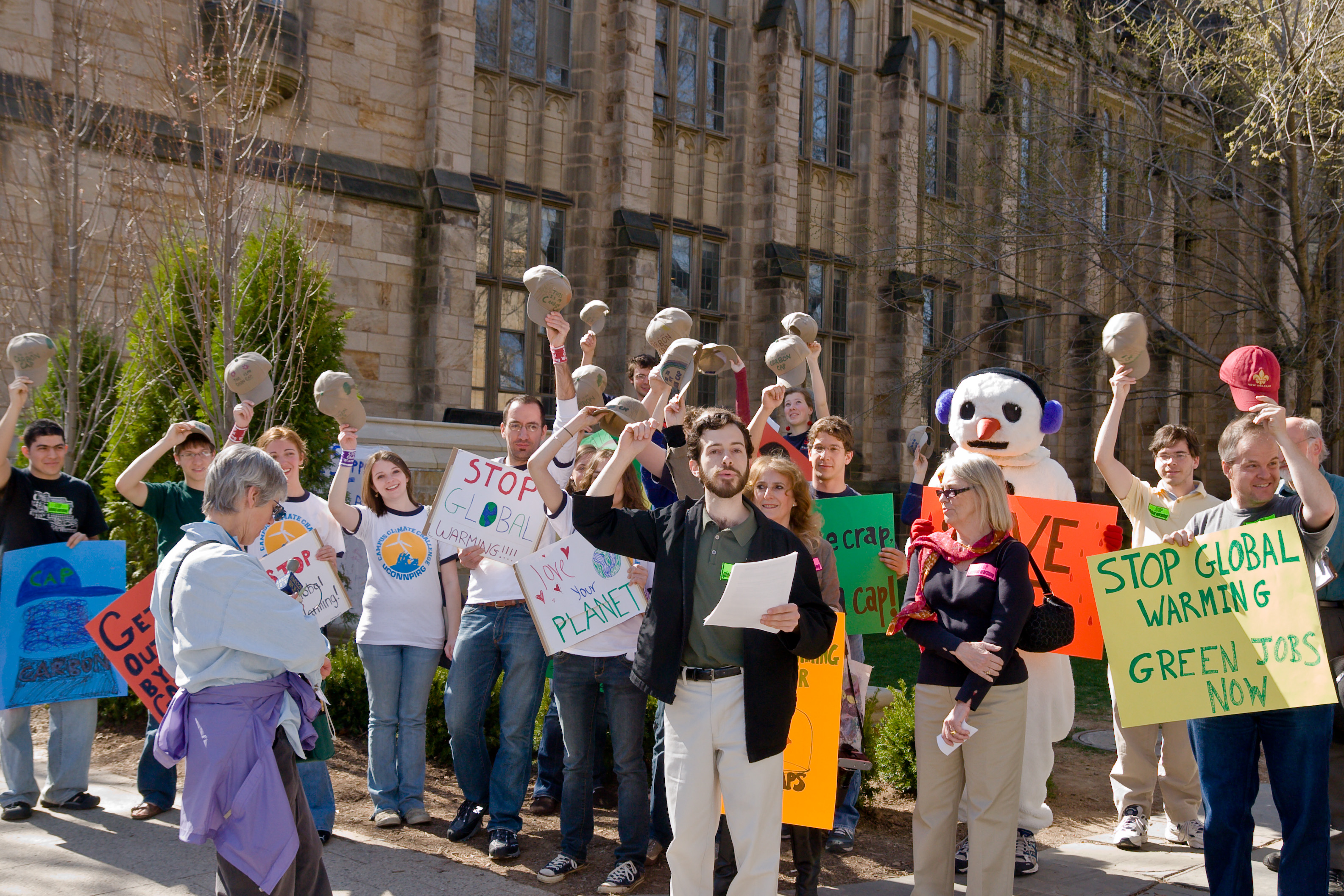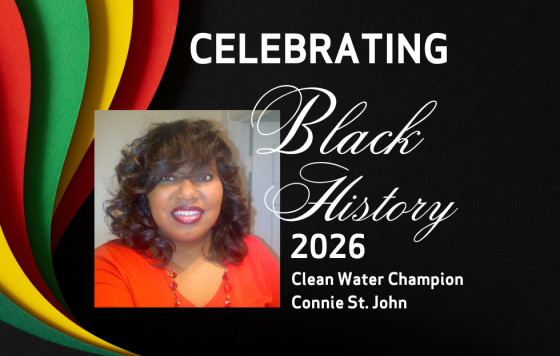
On July 20th, members of the Clean Water Action community joined together to celebrate the organization’s 50th anniversary. This event, held virtually, had an array of guest speakers reflecting on Clean Water Action’s past victories, memories, and what is to come for the organization’s future.
Joining us from Japan, Roger Smith, former Connecticut State Director, was one of the event’s most anticipated guests. Smith, who has been investigating tsunami recovery in the impacted town of Matsushima, Japan, discussed how his work at Clean Water Action led him to his current environmental work in Japan. Smith reflected on the obstacles he and Clean Water Action faced during his time as director: the construction of new coal power plants, a lack of renewable energy, and the former president’s refusal to join the Kyoto Protocol. To Smith, “really the only signs of hope were in the handful of states from New England to California. And to me, Connecticut felt like the center of the world.”
Despite these obstacles, Smith and the rest of Clean Water Action continued to push for environmental protections. Participating in demonstrations and conferences, including presenting at the UN Climate Change Conference in Montreal and attending the world’s largest climate demonstration to date, Smith decided to go a step further and translate a factsheet into Japanese to reach an even larger audience. This led to Connecticut’s climate progress being featured in the world’s largest circulation newspaper, Japan’s The Yomiuri Shimbun.
“What we accomplished in our part of the world wasn’t just of local interest, but it was of global significance,” said Smith.
In 2014, Smith made the move from Connecticut to Matsushima, Japan. Here, his work focused on supporting post-earthquake and tsunami recovery by returning foreign visitors to the area. While Matsushima itself was largely protected from the natural disasters by its landscape and geographic positioning, neighboring towns were not as fortunate. Thus, Smith’s work did not only center Matsushima, but also pushed for a broader recovery for the region.
“I use what I’ve learned at Clean Water Action every day,” says Smith. Smith emphasized the importance of connecting and listening to communities while at Clean Water Action, and how this focus transferred over to his work in Japan. Working to support tourism in Matsushima, Smith spoke to local business owners and young leaders to hear their frustrations and the challenges they faced during the recovery process; this allowed him to give more effective suggestions on how to increase and sustain tourism.
Since 2019, Smith has returned to the climate fight, working with a non-governmental organization (NGO) to stop the building of new coal plants in Japan. Here, he makes sure those communities affected by wood pellet mill pollution and the loss of their forests are heard by their policy makers.
For Smith, it is not just the organization, but the people within Clean Water Action, who have shaped his life, work, and passions.
“Lots of people talk about movements. Clean Water Action builds them. And there’s people here tonight who started with us on campaigns in the 1990s. You don’t have to imagine what building power looks like over that span of time. I mean, just look around at your state. I mean, it’s been utterly transformed from the one I first saw as a college freshman in 1997,” finished Smith.
At the event, National Board Member, Andy Bauer, also spoke about his experience with and pride over Clean Water Action. Bauer focused on Clean Water Action’s willingness to listen, acknowledge problems, take accountability, and effect positive change within the organization.
Bauer discussed the National Board’s decision to sign onto a non-environmental group’s efforts despite it being unfamiliar territory: “One of the key statements was made by one of my heroes, Vernice Miller-Travis, who said, ‘Listen, you know, the environment is wherever you are, and it’s not always the health of the planet. That's important, but it can be racism; it can be questions around LGBTQ. So, if we’re gonna ask these folks to support us, then we should be supporting them,’” said Bauer.
Additionally, Bauer was proud to be involved in an organization that listens to problems brought up by its community. After the Black, Indigenous, and LGBTQ+ caucuses came to the Board with internal issues, the Board did not “duck the hard questions,” but rather made changes within Clean Water Action to address the problems. Bauer commended the organization not only for its environmental efforts, but for the way it cares about people’s concerns, not just its own.
Andy Bauer finished up his speech by bringing up his and Clean Water Action’s part in the Sooty Six campaign. The Sooty Six campaign fought to remove loopholes in Connecticut laws allowing power plants built before 1977 to be exempt from modern pollution standards. Despite political obstacles, including a veto from Governor Rowland in 2001, the Sooty Six leaders kept fighting until eventually, in 2002, Governor Rowland signed a law to reduce soot pollution (sulfur dioxide) from Connecticut’s dirty power plants. The efforts of the Sooty Six leaders resulted in an 86% decrease in soot pollution, preserving the health and safety of Connecticut residents then, now, and in the future.
At the event, another special guest, Marilyn Allan, also spoke about her experience with Clean Water Action: how she got involved and why she continues to be a fervent volunteer, supporter, ally, and friend to the organization. Allan, who was canvassed by Clean Water Action’s field canvassing team in 2010, was immediately interested in Clean Water Action’s work, as “the canvasser touched on some things that I had been thinking about prior to that year… I was already in the process of carefully thinking about what goes into my drinking water,” said Allan.
The year before, Allan purchased a home and had come to realize her water was contaminated with radon, a tasteless, odorless, and potentially deadly substance. Allan expressed the camaraderie she felt within the Clean Water community working with others toward similar goals, such as protecting and preserving clean drinking water.
As part of Clean Water Action’s Healthy Families Initiative, Allan, along with others, talked to customers, workers, and managers at grocery stores around Connecticut about the BPA levels in cans being sold. She additionally recalled her involvement in the fight against toxic PFAS chemicals. PFAS chemicals, commonly referred to as “forever chemicals,” break down slowly over time and are found in everyday materials from clothing to hygiene products to take-out food containers. One monumental victory celebrated by the Clean Water community at this event was Connecticut becoming the first state in the country to pass legislation banning PFAS chemicals in food packaging.
The event also hosted special guest Senator Richard Blumenthal, who Clean Water Action has worked closely with on many initiatives in the past. Sen. Blumenthal congratulated the Clean Water community on 50 years, reflecting on the efforts he and Clean Water Action have championed together, such as banning BPA from baby bottles and containers and restricting the use of toxic firefighting foam. Sen. Blumenthal commended Clean Water Action’s efforts and push for legislation, having led Connecticut to become a model for the federal government.
“Connecticut is still at the forefront and still very, very much a leader, nationally, in protecting its citizens due to the extraordinary work of Clean Water Action. I cannot think of an environmental agency or organization that has done more through its inspiration, hard work, dedication, and simple caring to advance environmental causes,” remarked Sen. Blumenthal.
Anne Hulick, Connecticut State Director, discussed these and other Clean Water initiatives, including expanding Connecticut’s energy network, working toward bold climate action, expanding solar capacity and energy efficiency, and fighting against building the Killingly, Connecticut gas-fired power plant. Hulick praised the innovative solutions Clean Water Action’s members have come up with, as well as the teamwork and dedication people have put in, making these victories possible.
Moving forward, Hulick states, “We are going to work really hard to expand our team in Connecticut… We want to mobilize more local engagement for clean renewable energy, we want to protect our environment from toxic chemicals and plastic pollution, and we want to continue to be at the forefront of protecting and conserving our water.”
Without the support of Clean Water Action’s members, these victories would not be possible. Thank you to all of our friends and supporters!
If you were not able to make our 50th anniversary celebration, click here to watch the full recording of the event.
To support Connecticut’s clean drinking water and community health initiatives, click here to donate today!
Related Posts
Stay Informed
Get the latest updates and actions:
Thanks for signing up!
There was a problem processing your signup. Please try again.


